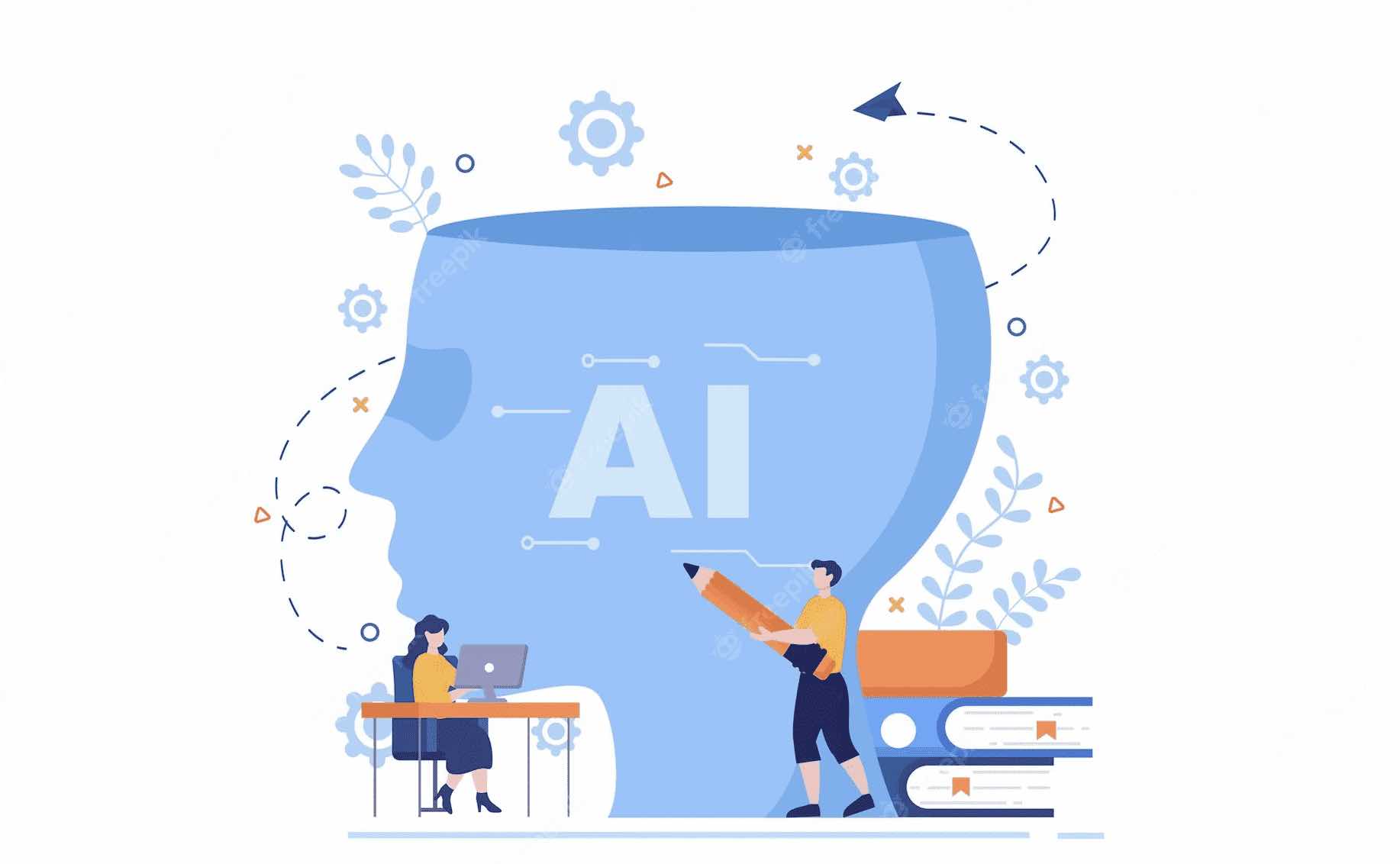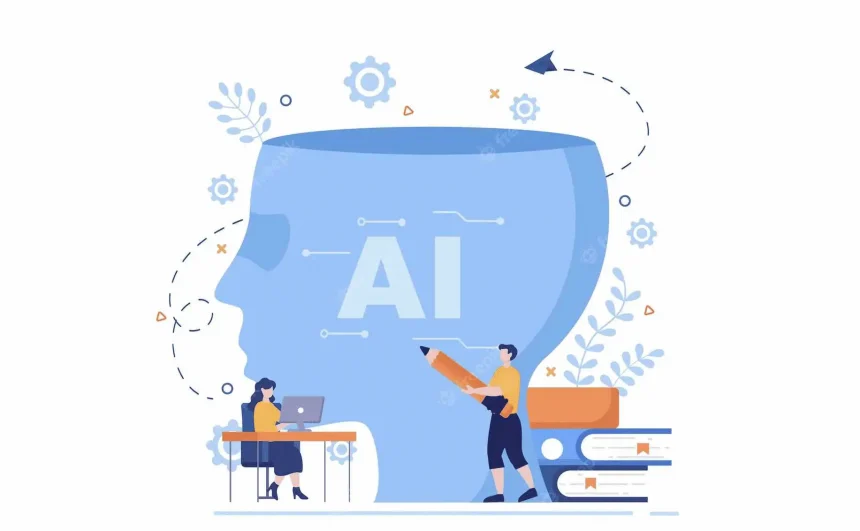
Introduction
The development of AI is the next step on the path of world progress, and the prejudices and remnants of the past always stand in the way of progress in the first place. Today we are on the verge of acceptance of artificial intelligence and neural networks by society. Almost every day, there are new scandals and claims from people who are afraid that neural networks will take away their work and future.
The author of this article personally believes that neural networks are designed to greatly facilitate the working profession for many specialists but not completely replace people in these areas. In addition, it is pointless to deny the contribution of AI to learning processes. Today we will talk about a new scientific and technological revolution, which has already been made and is still capable of being made by artificial intelligence in the field of education. Artificial intelligence is already able to help personalize the learning experience, improve access to learning materials and help students write assignments almost at the level of a professional essay writing service like essayshark, and chatGPT.
Also Read: How Technology Has Changed Teaching and Learning
Ability to Personalize the Learning Experience
Artificial intelligence (AI) has the potential to revolutionize education by providing a highly personalized learning experience to students. The incorporation of algorithms and machine learning allows AI to analyze student data and tailor the curriculum to meet each student’s unique needs and learning styles. This innovative approach to education has the potential to enhance the quality of learning and provide teachers with a better understanding of their students’ capabilities and areas that require further support. It is a genuinely radical idea that can potentially transform how we approach education.
Furthermore, AI in the classroom provides students with immediate feedback on their work, allowing them to identify areas that require further attention quickly. This feature is precious for students who face difficulties in certain concepts or need assistance with complex topics. Additionally, AI can help teachers identify patterns in student performance, enabling them to teach more effectively.
The impact of AI in education is revolutionary. Although challenges and issues still need to be addressed, the benefits of AI in education are indisputable. As technology advances and more people embrace AI, we can expect to see numerous exciting advancements in the field of education.
Also Read: How is AI Being Used to Change Higher Education?
Improving Access to Education
The incorporation of artificial intelligence (AI) technology in education has the potential to improve access to education for students with disabilities significantly. By leveraging AI-powered solutions such as speech recognition software and text-to-speech technology, students with hearing and visual impairments can participate more fully in classroom activities and access course materials. In addition, AI can identify areas where individual students are struggling and provide personalized support to help them overcome these challenges. This can lead to improved educational outcomes and better opportunities for students with disabilities to achieve their academic goals.
Enhancing Student Engagement
One of the benefits of AI in education is its ability to enhance student engagement, leading to better learning outcomes. AI can make learning more enjoyable and engaging for students by incorporating gamification and interactive learning tools. For example, using game-like elements such as points, badges, and leaderboards motivates students to participate and progress through their studies.
Moreover, AI can personalize the learning experience for each student by adapting to their unique needs and preferences. For instance, a language learning app powered by AI could use machine learning algorithms to recognize a student’s strengths and weaknesses and provide tailored feedback and learning materials accordingly. By catering to each student’s specific learning style, AI can help maximize their learning potential.
Also Read: 5 Fascinating Ways VR Tech is Reshaping Education Worldwide
Addressing the Teacher Shortage
AI can also address the issue of teacher shortage by supporting educators. Chatbots and virtual assistants can be used to answer common student queries and provide essential instructional support. This can reduce the workload on teachers, allowing them to focus on more complex tasks like lesson planning and student assessment.
In conclusion, the use of AI in education has the potential to revolutionize the way we teach and learn. By personalizing the learning experience, enhancing access to education for students with disabilities, enhancing student engagement, and addressing the teacher shortage, AI can ensure that all students have access to high-quality education and can achieve their full potential.
Potential Drawbacks
Artificial Intelligence presents promising educational advancements, yet it is vital to acknowledge the potential downsides. A primary apprehension is the possibility of AI reinforcing existing biases in education. Should the algorithms utilized by AI be based on partial data, they could sustain and even escalate existing disparities in education.
Another apprehension is the likelihood of AI replacing human teachers. Although AI can provide valuable support for educators, it is imperative to remember that teaching is a multifaceted and nuanced vocation that necessitates human interaction and empathy. While AI may be proficient in providing essential instructional support, more is needed to replace teachers’ significant role in motivating and guiding their students.
Also Read: Will AI Replace Teachers?
Conclusion
In summary, implementing AI in education holds excellent potential for significant benefits for students and teachers. A major advantage of utilizing AI in education is the ability to customize each student’s learning experience, accounting for their unique strengths and weaknesses. This can lead to better educational outcomes and augmented student engagement. Additionally, AI can assist in addressing the issue of accessibility by providing tailored tools and resources specifically tailored to meet the needs of students with disabilities.
Another potential benefit of AI in education is the capacity to address the shortage of teachers many schools face. Teachers can concentrate more on teaching and interacting with their students by automating specific tasks, such as grading and administrative duties. Nonetheless, it is crucial to exercise caution and thoroughly consider the potential drawbacks of AI in education.
One of the chief concerns with utilizing AI in education is the possibility of bias and discrimination. This is especially true regarding automated decision-making processes like admissions and scholarships. Furthermore, there is a risk that students may become excessively reliant on AI tools, resulting in the underdevelopment of critical thinking skills or the ability to solve problems independently.
Ultimately, the successful integration of AI in education will necessitate a meticulous and subtle approach that balances the benefits with the potential hazards. As AI technology advances, it will be crucial for educators and policymakers to remain informed and current on the latest developments and to adapt their practices accordingly. By doing so, we can guarantee that AI is utilized in a manner that optimizes its potential to enhance education for all students.
References
“43 Examples of Artificial Intelligence in Education.” University of San Diego Online Degrees, 7 Dec. 2021, https://onlinedegrees.sandiego.edu/artificial-intelligence-education/. Accessed 18 Mar. 2023.
“Artificial Intelligence.” Office of Educational Technology, 1 Apr. 2022, https://tech.ed.gov/ai/. Accessed 18 Mar. 2023.
“Artificial Intelligence in Education.” UNESCO, 2 Feb. 2023, https://www.unesco.org/en/digital-education/artificial-intelligence. Accessed 18 Mar. 2023.
“Future of Testing in Education: Artificial Intelligence.” Center for American Progress, 16 Sept. 2021, https://www.americanprogress.org/article/future-testing-education-artificial-intelligence/. Accessed 18 Mar. 2023.
“Harvard EdCast: Educating in a World of Artificial Intelligence.” Harvard Graduate School of Education, https://www.gse.harvard.edu/news/23/02/harvard-edcast-educating-world-artificial-intelligence. Accessed 18 Mar. 2023.











